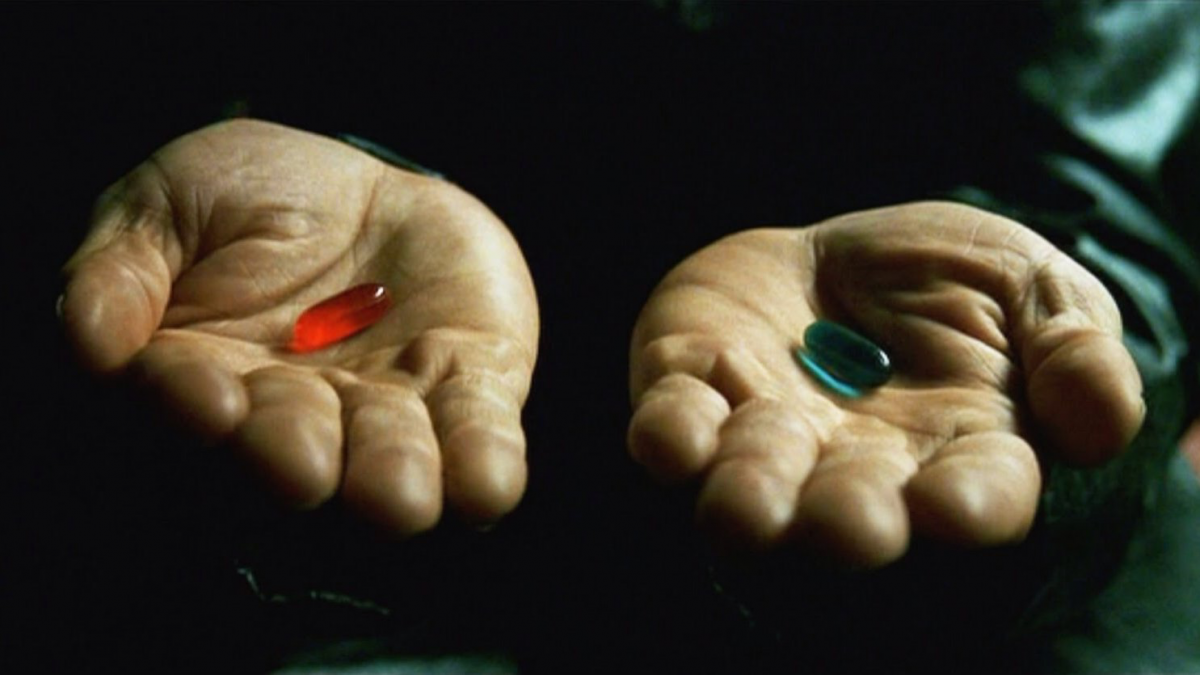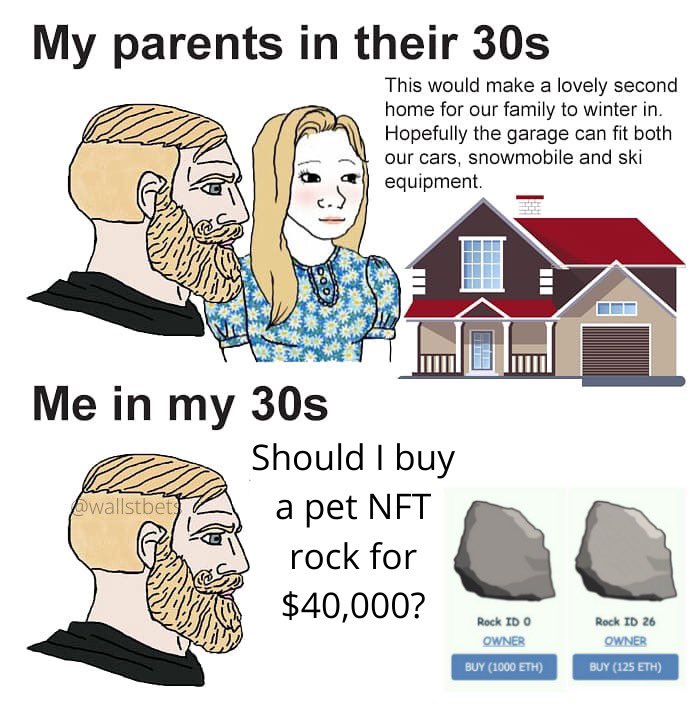I Immersed Myself in Discord for 2 Weeks to Learn About Crypto Community Building

Conversations online surrounding NFTs are largely limited to several outcomes:
- Calling NFTs “jpgs with no real utility” that can be screenshot.

- Don’t really care what it does but it’s going to make me rich. In other words, degeneration.

- “NFTs have utility, *proceed to explain utility*” (If you’re pretentious enough)
I’m not into NFTs personally – I still don’t get it. But, I am attracted to sarcastic quips and am too nosy for my own good. So in light of keeping up with the times in this bear market, I immersed myself in several Discord groups to get a better idea of internet communities, especially after the supposed flop that was NFT.NYC.
Must I do everything myself? NFT NYC cringe thread. Will be compiling whatever cringe I find as a reply to this tweet.
— 🕷️🕸️SPXDΞR🦇🔊 (@ThatsTheGwei) June 22, 2022
What’s Discord all about?
Discord, essentially a chat app with additional features, grew in popularity for crypto communities because of its security features. Many projects use the sophisticated features to send codes to their team or community to collaborate on, provide feedback and suggestions to improve the project. Communities are also built here and this is important because numbers matter because it enhances legitimacy and its free marketing.
If you’re new to Discord, it can get confusing, so here’s a quick primer on what it’s all about.
- A “server” is basically a group of people that unite over a shared passion. Anybody can create their own server, but they need to be able to moderate.
- “Moderators” are actual job roles within popular communities like gaming and crypto servers that can be full time jobs. Moderators essentially enforce of guidelines, and build healthy environments that hosts meaningful discussions.
- “Channels” are created within servers to discuss more specific topics, this keeps the server organized.
- “Roles” are like ranks in a forum or on a subreddit where users receive different privileges within a server. Some projects assign roles based on color to see who qualifies for which kind of airdrop. This helps build hype and exclusivity quickly as people rush to get verified. In this world, people get rewarded for being early.
I logged my interactions in the 2 weeks I spent on crypto discord.
Day 1: Don’t forget your manners, GMs and GNs
While we want to push for mass adoption, there is no denying that crypto is an insiders’ world. From WAGMI to HODL, the slang never ends. More than capturing the essence of crypto, these abbreviations serve as a signal to other people that someone is part of the cryptoverse. “gm” or “GM!” for louder exclamations is like the Web3 version of the Web2 “Hello World!”.
While gm stands for “good morning”, its more than a greeting in the crypto world, symbolizing that the community is early and that the future of crypto is bright. This also builds camaraderie and shows support to the culture of building around NFTs and Web3 technology
Twitter influencers are also fond of using “Gm” as a way to acknowledge their followers. You’d be shocked to see how much engagement this garners. People are always saying “gm” at any hour because the community is so global.
Having been on Crypto Twitter for about 6 months, no one has responded to my greetings. But on Discord, people do because those in this space LOVE letting other people know that they’re in this space.
Takeaway: People like feeling part of an inside joke, use that to your advantage.
Day 2: Enter Your Seed Phrase (Scammers)
If you’ve been crypto for a while and have fallen prey to scams, don’t worry, you are not alone. In fact, it is so common that the everydayman probably alludes crypto to a Ponzi scheme. So here are several common Discord scams and what you need to look out for.
The Helpful Fella
Discord scams occur in your DMs. Seemingly friendly and well-intentioned, someone could follow up privately when you ask a question on Discord. Usually a message of assistance, they will likely send dubious websites or a form where you must enter important information – essentially a phishing scam.
The Promoter
Just like how club promoters invite and bait you to that swanky new club, this user will create a excitement by offering large prizes that seem too good to be true. Many times the site linked is fake and there will be requests for private and sensitive information like your wallet’s private keys.
The Salesman
This type of scam involves DM senders promoting phony NFTs or well-known products with substantial discounts. Here, like in previously mentioned types of Discord scams, the sender asks to click a link, then go to a dubious site or fill out a form with important information.
Takeaway: Discord scams are about getting your information and stealing your crypto. Oh! And they prey on ignorance so new joiners should be especially wary.
Day 4: It’s the hard knock life: task completion
After I got verified, I was supposed to get a role that would qualify me for a free airdrop. However if it sounds too good to be true, it is. I had to complete a series of tasks (get 5 people to join, share on twitter,etc.) before I got assigned my role. Sometimes, mods miss your entry and and there will be back and forth, it seems like a lot of effort. Put simply, people are willing to do alot for the CHANCE to get first dibs.
Main takeaway: You make money when you buy, get in at mint price and resell-fastest fingers win.
Day 7: Encounter with the Know-it-All
This person will always have an answer when it comes to questions regarding the project. In many cases, this person will either be employed by the team to answer the questions and moderate from time to time, or they could be an insanely passionate community member. Why would people who are not directly involved with a project act as glorified customer service staff?
Here’s the thing about the crypto space, a lot of times you have to put your money where your mouth is and prove your worth. In other words, to be awarded better roles, qualify for airdrops or even be granted first priority (think whitelisting), some legwork is involved. These people might be doing it in hopes of getting noticed by project members and hope to either be in on the project or they just want the benefits that come with being early and a valued community member.
Takeaway: Pay your dues by being an FAQ answering machine. Show not tell, but in this case, educating new joiners will help the team notice you.
Day 9: What Do You Meme?
Everyone loves memes. If theres a subculture out there, you best bet theres a meme for it. What better way to signal to the world you’re an insider than by posting memes that a select few will get? Meme contests bring awareness to the project and well, they’re quite fun.
Takeaway: Making fun of ourselves is more than okay; degeneration is encouraged.
Day 12: Inhaling the Hopium
Before knowing it, I was turned on to the “Hopium” – a portmanteau of “hope” and “opium”. Alarm bells do ring when opinions might be based on pure speculation and not actual fundamentals, but I can see why having a community can convince even skeptics to take the plunge.
After a few days of interacting with the people and the team, I’m starting to see the potential of certain NFTs, especially in the space of regenerative finance,carbon offsets and music royalties. Of course, I still had my doubts, but hey, blockchain just might provide us with freedom and access just like how the internet did.
How? I don’t know the technicalities of it, but I like being a part of something. More importantly, it’s telling people that I trade NFTs and that that I believe in the future and potential of the technology so that they will accept me into their cool little groups.
Takeaway: Be part of the echo chamber: tell people what they want to hear for likes and replies.
Where alpha?
At the end of the day, a Discord server gives you an “insider” look at what an NFT project’s team is doing. Unlike Web2 companies, there is hardly any transparency and interaction with the people behind the project. This experiment gave me a look into what it means to be part of a community and whether open discussions are truly welcome. I would say yes and no.
For the majority of participants, they’re in it for the flips. There are discussions of how to go about structuring governance and such, but it’s disproportionate to the people in it for short-term gains.
While my time involved has been short there are some takeaways from this experiment.
- Communities are basically amplifiers of the brand, and if the incentive for amplification is money, you bet people are going to get caught up in the hype and lose objectivity in what essentially is an echo-chamber.
- It’s easy to get rugged, even projects with a lot of hype, backing and legitimacy can fall short, take note if many influencers are actively shilling a particular project. Risk management is crucial so do not use money you cannot afford to lose.
It has been an interesting experience thus far and while I can’t say that I am all in on NFTs, I can see why they are a staple in many projects.
Are we on to something with NFTs? Or do we all need to touch grass? (“Touch grass” is an internet idiom that essentially means “get off the internet and go outside.” People online use it as an insult when someone seems out of touch with reality). What do you think?
